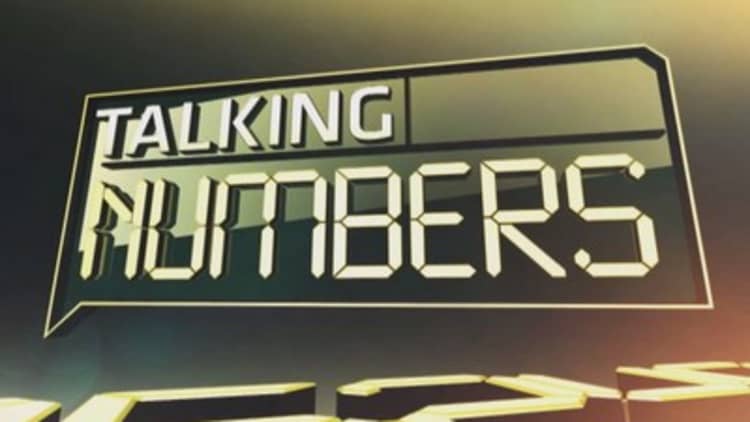
Facebook is feeling the backlash from its real customers – its advertisers.
A recent blog post by Forrester Research's Nate Elliott declares that Facebook has abandoned social marketing and its ads aren't delivering results to advertisers.
Elliott says that when brands post to their Facebook pages, only about 6% of those pages' fans will actually see the post, based on research by Ogilvy. What's more, Ogilvy found that pages with 500,000 or more fans were able to reach only 2% of those fans by posting.
The reason is that the Facebook algorithm – which, unlike Twitter, is supposed to weed out the noise in your news feeds from all your friends posting pictures of their cats and/or inane political rants – also weeds out most of the posts from pages of companies you like.
(Watch: Why is Facebook crushing Twitter?)
Now, here's where Facebook makes a huge chunk of money: first it sells ads to companies to get Facebook users to like their pages. Then those same companies pay Facebook again to get around the algorithm so they can appear on their fans' news feeds.
Then it gets worse for companies: a lot of those "likes" advertisers pay Facebook to get are actually fake likes. That's not saying Facebook actively creates fake accounts to "like" advertisers pages. Rather, some click farms in countries like Egypt and Pakistan hire people to "like" random pages so their fake accounts don't get kicked off of Facebook. Attempts to prevent ads (and thus bogus "likes") from reaching countries known for their click farms don't always work for advertisers, though.
That creates a problem for advertisers because those fake fans don't engage with a page's content. When an electronics company or ice cream brand or whatever posts something, the fake fans aren't "liking" individual posts. They're not commenting on those posts. That leads the company's posts to appear in fewer and fewer news feeds of its real fans because Facebook's algorithm weeds out posts that have low engagement relative to the company's total fan base.
Facebook's solution to that problem, of course: buy more ads. And that's where advertisers are getting fed up.
According to Elliott, advertisers are now expressing their outrage at how Facebook is taking their money right and left but giving little results. Elliott writes:
"Every day I talk to brands that are disillusioned with Facebook and are now placing their bets on other social sites — but few of them want to go on the record. Lately, though, more brands and agencies have started speaking openly to the media about how Facebook is failing them. One former Facebook advertiser referred to Facebook as 'one of the most lucrative grifts of all time.'"
Facebook has more than a million advertisers and 88% of the company's $7.9 billion in 2013 revenues came from ads.
CNBC contributor Gina Sanchez, founder of Chantico Global, says Facebook's advertisers' discontent is worrisome.
"What concerns me particularly is that we've seen these various studies and we've seen various comments here and there," says Sanchez. "But, now we're actually seeing major ad agencies speaking out on this issue. Those are leaders in the market and that is extremely concerning."
Sanchez says that Facebook's ad revenues have been growing along with the rest of the online ad market. Acquisitions such as the company's recent $16 billion purchase of WhatsApp, have been meant to grow its user base and its ad revenues. But, if advertisers turn away, that could be all for naught, according to Sanchez.
"I they lose that ad revenue," says Sanchez, "all of those users aren't going to be worth anything."
(Read: )
While Facebook's stock has been on an uptrend for the past several months, Talking Numbers contributor Richard Ross, Global Technical Strategist at Auerbach Grayson, is sees potential uncertainties in the stock's chart.
"The trend remains higher," says Ross, "but clearly there are concerns, not just on the fundamental side, but now on the technical side as well."
Ross notes the stop gapped higher in late January. That is, its high on January 29 was $54.95 per share. On January 30, its low was $60.46, creating a $5.51 gap. He sees Facebook's stock price potentially retracing to a level in that gap. The stock was trading at $69.30 per share midday on Tuesday.
"That gap creates a very exciting downside target," says Ross. "Technicians tend to believe that all gaps eventually get filled. In this case, I would happen to agree with that old idiom."
Facebook's 100-day moving average also provides a potential target level for the stock price. The 100-day moving average was tested three times in the past nine months, notes Ross, and is currently at $56.83. That's a price well inside the uptrend but it's still a sizable drop.
"Keep in mind, that's $12 down from current levels," says Ross. "That's almost a 20% pullback and yet the stock could still be in an uptrend."
A break below a key support level at $66 per share would set the stock up to target its 100-day moving average, according to Ross.
"In the short-term, you do not want to be a buyer of Facebook," says Ross. "Wait [and] buy the stock on a pullback if you believe in the longer-term story."
To see the full discussion on Facebook with Sanchez on the fundamentals and Ross on the technicals, watch the video above.
-----
Follow us on Twitter: @CNBCNumbers
Like us on Facebook: facebook.com/CNBCNumbers


